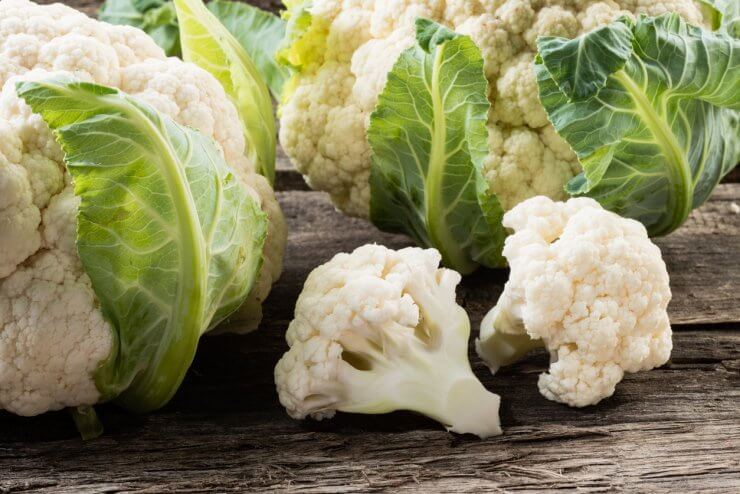
Health benefits of cauliflower

Health benefits of cauliflower
With all of it nutritional attributes, cauliflower has plenty of health benefits for you, besides its natural garden-fresh goodness. Though it’s not studied very well on its own, and many studies include all the cruciferous vegetables, here are some of the ways a diet containing cruciferous vegetables, such as cauliflower, contributes to good health:
Antioxidant power
Cauliflower contains vitamins C and K, plus manganese, which are antioxidants that can neutralize dangerous free radicals before they can cause damage to healthy cells and contribute to disease, such as heart disease, cancer, and arthritis.
In fact, in one cup of cooked cauliflower you’ll get up to 77 percent of the recommended daily amount of vitamin C, 19 percent of the daily vitamin K amount, and 8 percent of the manganese amount.
Cancer
Cauliflower, as a cruciferous vegetable, is rich in plant-based compounds such as sulforaphane and indoles, which scientists believe may reduce the risk of developing some types of cancer, such as prostate cancer. Studies in animals have shown promising effects in this direction, though human studies have shown mixed results.
In addition, some research suggests that glucosinolates found in cruciferous vegetables, when broken down, may produce compounds that may encourage elimination of carcinogens from the body.
Heart health
There are a few studies showing that consuming higher amounts of cruciferous vegetables is linked with a decreased risk of heart disease, compared to eating a lower amount, but results have been inconsistent.
The compound sulforaphane is associated with strong blood vessels. One study suggests that its anti-inflammatory capabilities may help protect against hypertension, atherosclerosis, stroke, and myocardial infarction.
Digestive health
One cup of cooked cauliflower has about 10 percent of the recommended daily amount of fiber—which many adults do not get enough of in their diets. Fiber prevents constipation and promotes bulkier, softer stools, making life more comfortable and helping to maintain colorectal health.
Anti-inflammatory power
The high vitamin K content in cauliflower can help reduce inflammation. It also has beneficial omega-3 fatty acids, the same healthy fats found in salmon and flax seeds, but with a lower number of calories than those foods.
Vitamin B powerhouse
Cauliflower boasts a whole host of B vitamins: 1, 2, 3, 5, 6, and 9. That includes folic acid, so pregnant women or those planning to become pregnant would do well to add cauliflower to their weekly consumption.
One downside to cauliflower, like all cruciferous vegetables, is that it can make some people feel bloated or gassy. Also, experts warn that eating too many leafy green vegetables, including cauliflower, can interfere with the effects of the blood-thinner warfarin. Go ahead and eat them, but keep your intake of foods rich in vitamin K consistent from week to week.
Did you know that cauliflower could be so healthful and beneficial? Please tell us what’s most important to you among these health benefits.



